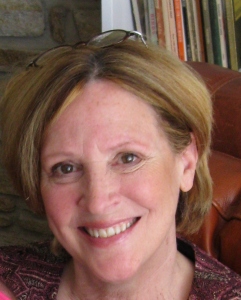As scandals during my childhood in Massapequa went, this one had legs. I didn’t understand it completely, but I could tell by my parents’ tone it was bigger than the brouhaha about the Townsends refusing to pick up their dog poop, which had rocked Hamilton Avenue the summer before.
This one started the day my mother drove me to our family dentist — a man I’d known all my life — for my 6-month appointment. While we sat in his waiting room, I silently recited my usual prayer to the molar gods about no cavities. My mother immediately noticed that Dr. McGarrity had placed a copy of Barry Goldwater’s book, The Conscience of a Conservative, on each end table. And as if that weren’t enough, instead of the usual pamphlets about brushing your teeth after every meal, there were now red, white, and blue brochures explaining why people should vote for the senator from Arizona.
“And not just one table,” my mother told my father that evening, “but all five!”
“Did you say anything to him?” my father wanted to know.
“Of course not!”
We talked politics often in my house — the keyword being “in.” I knew that Goldwater was diametrically opposed to everything my parents held dear because they were liberals of the highest degree. If any of our neighbors actually believed in Goldwater (and undoubtedly there were a few on Hamilton Avenue), they kept their leanings to themselves. As did we.
And this — to put it simply — was the way the world worked before Facebook. It was a place where your dentist throwing his conservative beliefs out there on a table could horrify people who were just there to get their teeth cleaned. Long before Twitter came along and we realized how cleverly we could condense our opinions into 140 characters, my parents were aghast that Dr. McGarrity would want the world to know how he planned to vote.
Anyone reading my blog for the last year knows I’m not above hauling out parts of my youth and giving them nostalgic air time. And anyone who is lucky enough to make it past forty begins to see how “simple” life was then. Some of us pine for the past — loudly and often — especially this year, when the world seems to be upside down.
I’m not one of those people.
Every time someone talks about the Fifties and how perfect they were, I shift to other thoughts: Separate water fountains. Polio. Gay men cheerfully described in their obituaries as “lifelong bachelors” by family members who didn’t know the truth. Or the unrealized dreams some women mourned when they signed up to become housewives and spent every day of the rest of their lives slowly disappearing.
This election cycle looks like it will get crazier before it gets better, and as much as social media is something I can’t live without, these days I feel like I’m drowning in it, especially when my fellow Baby Boomers are at the keyboard. In one corner, we miss the civility and quiet of the Fifties. In another, we’re generating memes and comments — about our candidate, our issue — at an astonishing rate. We need to feel right. About everything.
Maybe it’s time to take a breath. Which is what I’ll do. As soon as I update my Instagram account.
